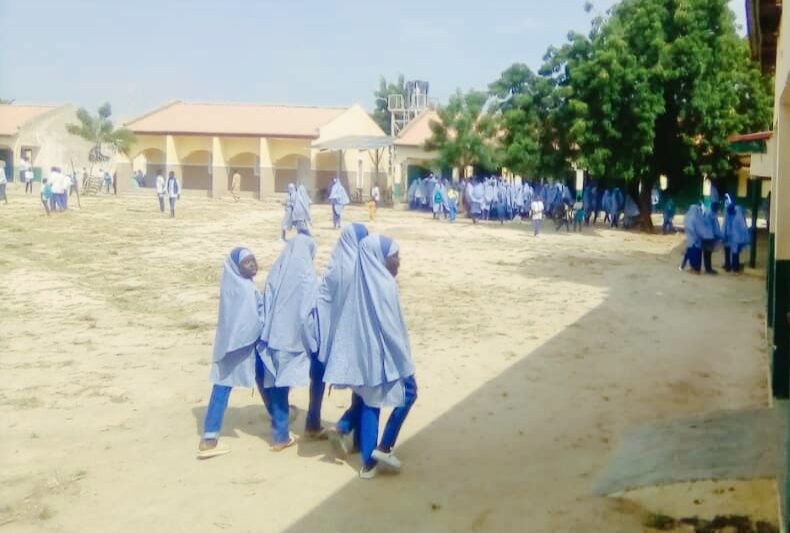In Borno State, the high cost of living crisis is the main reason girls are not going to school
At least 7.6 million girls are out of school in Nigeria and most of them – 48% – are in the northwest and northeast of the country.
There are 3.9 million girls missing out on schooling at the primary level and 3.7 million at the junior secondary level.
A significant disparity exists between the poorest and the wealthiest quintiles, with only 9% of girls from the poorest backgrounds attending secondary school, compared with 81% from the richest quintile.
These alarming figures were disclosed by the United Nations Children’s Fund (UNICEF) at an education conference in Abuja organised by the French Institute of Nigeria on Friday, September 22.
The title of the conference was “Demographic Dynamics and the Challenges of School Enrolment in Nigeria”.
Nigeria accounts for 15% of all out-of-school children – boys and girls – globally, said Jutaro Sakamoto, the education manager at UNICEF.
He said more than 50% of girls in Nigeria were not attending school at the basic education level.
Gender parity in the net attendance ratio was below 1.0 in 10 states, primarily in the north, but was decreasing in 15 states.
In the Dikwa Local Government Area of Borno State – in the northeast – it was mostly the high cost of living crisis that was stopping parents from sending their children to schools.
Teenage girls who attended boarding schools were most affected.
Parents blamed the skyrocketing cost of living on the removal of the fuel subsidy, which had resulted in the prices of all commodities escalating beyond the reach of many Nigerians. Even before its removal, the prices were high, they said, but now the prices of everything had soared and were continuing to do so.
The parents and guardians of the pupils said they could not afford to pay school fees and they also did not have enough money to pay for uniforms, textbooks and other learning materials.
Yana Gana, from Dikwa town, said she had stopped her teenage girl going back to boarding school simply because she could no longer afford it.
“The prices of everything have soared. The new school term commenced about two weeks ago and my daughter is still at home. I don’t know what to do.”
Fatima Umar, also from Dikwa town, told RNI that if girls attended boarding school parents had to pay for food and learning materials, such as exercise books, textbooks, school uniforms, shoes and bags.
“As parents we must provide all the necessary requirements, particularly food and learning materials, for our children. We need to provide enough for at least a month at a time. Now it is extremely difficult for us because of the exorbitant cost of food and other items. For example, a bar of soap used to cost about ₦100 but now it cost ₦200 or ₦260. And let’s not forget the prices for food items and other things.
“Even if we able to send our children to attend boarding school, the school management can’t afford to feed them. It is very trying and extremely difficult for pupils to study when they are hungry.”
She said the government, humanitarian agencies and philanthropists needed to help parents because it was essential that their children get an education.
Fatima Mohammed, a teenage girl who used to study at Dikwa Secondary School, said her parents could no longer afford to send her to the school.
“We cannot afford to buy food and other items because of the high cost of living. I am very worried and extremely upset because I am missing school. I just sit idly at home now.”
Amina Abubakar said lack of money was also the reason her parents had stopped sending her to school.
“My parents are poor and they can’t afford even to buy food. Even if I could go back to the boarding school, the school management can’t afford to provide enough food for the pupils, though the government did provide more funds but not enough. As the cost of living crisis continues, still they can’t feed all the pupils.”
SHETTIMA LAWAN MONGUNO









